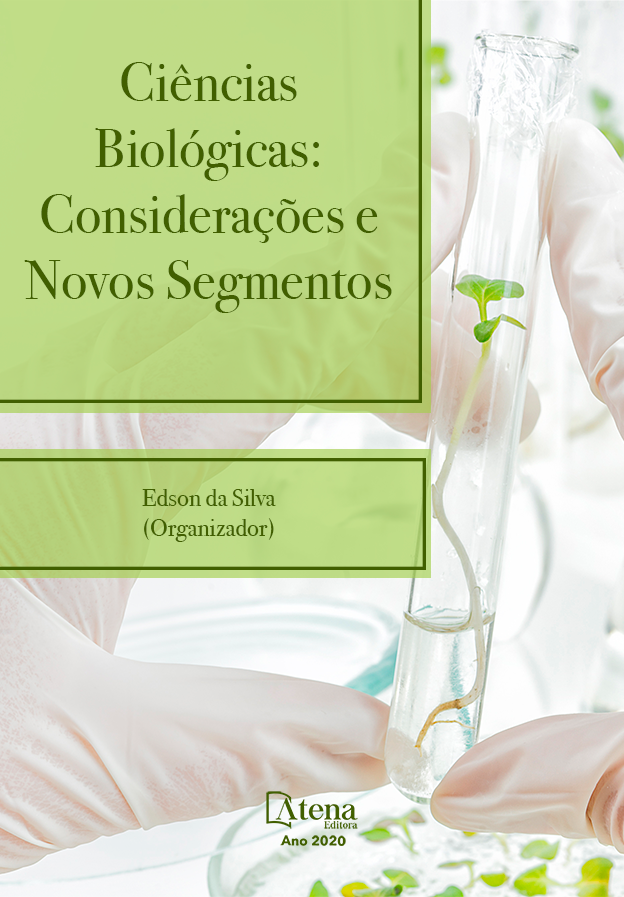
TESTE ALELOPÁTICO DO EXTRATO DE ERVA DE PASSARINHO (STRUTHANTHUS MARGINATUS (DESR.) BLUME) NA GERMINAÇÃO E DESENVOLVIMENTO DE ALFACE (LACTUCA SATIVA L.) E PEPINO (CUCUMIS SATIVUS L.)
O Brasil possui uma imensa diversidade de espécies vegetais pouco estudadas. O avanço tecnológico, científico e econômico atrelado à agricultura tem levado a processos degenerativos da natureza. O desenvolvimento de técnicas e produtos que minimizem esses danos podem ser uma solução sustentável. Nesse contexto, o teste alelopático da erva-de-passarinho mostra-se como uma alternativa à produtos nocivos ao meio ambiente. A alelopatia é um processo pelo qual produtos do metabolismo secundário de um vegetal são liberados, interferindo no desenvolvimento de outras plantas. O objetivo deste trabalho foi avaliar a influência dos extratos de erva-de passarinho na germinação de sementes de alface e pepino. Os experimentos foram conduzidos entre setembro de 2017 e março de 2018. Os ensaios foram realizados em placas de Petri com papel de filtro umedecidos com os extratos de folhas e galhos em três concentrações 10%, 20% e 50% (m/v), com fotoperíodo de 24 horas (Ensaio 1) e 11 horas (Ensaio 2), a germinação foi monitorada por sete dias. No Ensaio 1, a solução clorofórmica de galhos (50% m/v) apresentou uma significativa redução na taxa de germinação do alface. No Ensaio 2 nenhum dos extratos apresentaram diferença significativa na taxa de germinação das sementes. Entretanto, o extrato metanólico em todas as concentrações causou um aumento do índice de velocidade de germinação do alface e do pepino. Conclui-se que os extratos influenciaram na germinação das espécies vegetais pesquisadas. Ainda não são descritos na literatura compostos isolados da erva de passarinho tornando os extratos uma rica fonte para estudos fitoquímicos.
TESTE ALELOPÁTICO DO EXTRATO DE ERVA DE PASSARINHO (STRUTHANTHUS MARGINATUS (DESR.) BLUME) NA GERMINAÇÃO E DESENVOLVIMENTO DE ALFACE (LACTUCA SATIVA L.) E PEPINO (CUCUMIS SATIVUS L.)
-
DOI: 10.22533/at.ed.1392021097
-
Palavras-chave: Alelopatia. Germinação. Extrato Clorofómico. Extrato Metanólico.
-
Keywords: Allelopathy. Germination. Chlorophoric Extract. Methanolic Extract.
-
Abstract:
Brazil has an immense diversity of plant species that have been little studied. Technological, scientific and economic advances linked to agriculture have led to degenerative processes in nature. The development of techniques and products that minimize these damages can be a sustainable solution. In this context, the allelopathic test of finch is shown as an alternative to products harmful to the environment. Allelopathy is a process by which products from the secondary metabolism of a plant are released, interfering with the development of other plants. The objective of this work was to evaluate the influence of bird weed extracts on the germination of lettuce and cucumber seeds. The experiments were carried out between September 2017 and March 2018. The tests were performed in Petri dishes with filter paper moistened with the extracts of leaves and branches in three concentrations 10%, 20% and 50% (m / v), with a 24 hour photoperiod (Trial 1) and 11 hours (Trial 2), germination was monitored for seven days. In Test 1, the chloroform solution of branches (50% w / v) showed a significant reduction in the germination rate of lettuce. In Test 2 none of the extracts showed a significant difference in the germination rate of the seeds. However, the methanolic extract in all concentrations caused an increase in the rate of germination speed of lettuce and cucumber. It was concluded that the extracts influenced the germination of the researched plant species. Compounds isolated from bird grass are not described in the literature, making the extracts a rich source for phytochemical studies.
-
Número de páginas: 23
- Adriana Leonardo Lima Silva
- Vitor Caveari Lage
- Gleisiane Braga da Silva
- Maycon do Amaral Reis
- Juliana Baptista Simões


